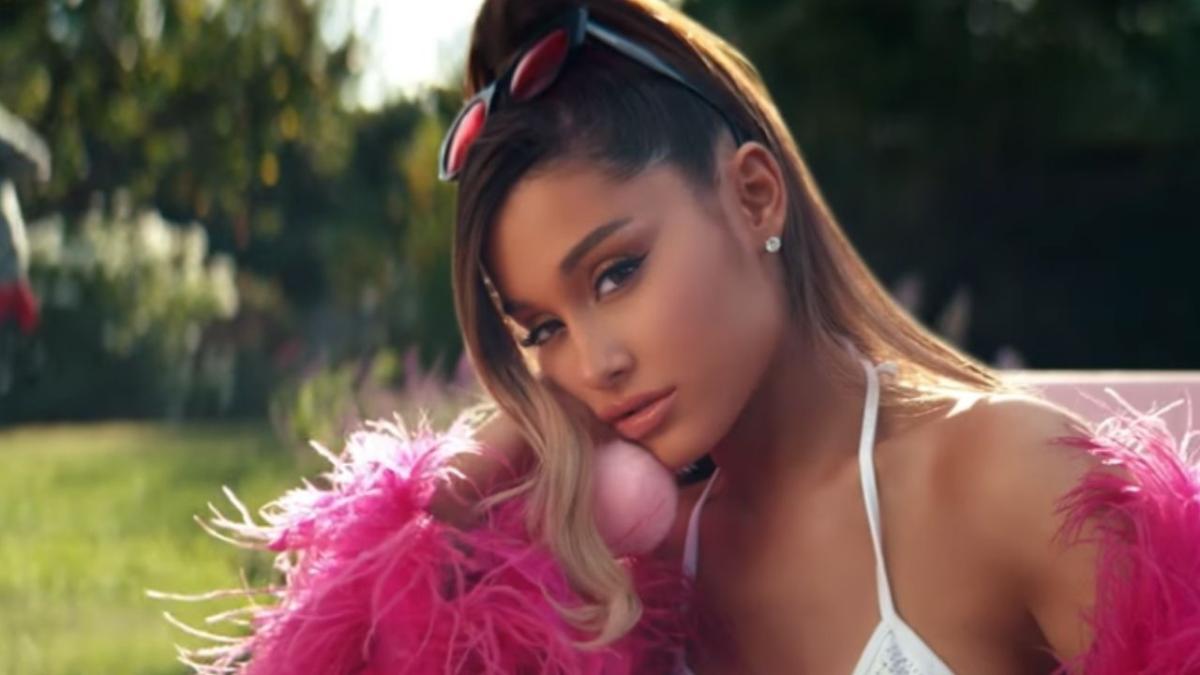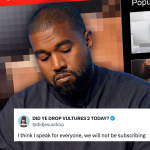
Fake tanning is a hugely popular and very normal part of white Aussie culture, but it’s always made me uncomfortable as a brown girl. It wasn’t until I started making friends with other women of colour that I realised I’m not alone in feeling this way. It turns out, fake tanning is rooted in pretty problematic, and often racist, ideas of beauty – and it’s about time we explored that.
I’ve gotten into ~controversial~ conversations about tanning since forever, as a brown woman who’s had my skin either fetishised or demonised my entire life. On the one hand, I grew up with people telling me I was too dark for basically any of the typical pleasures in life. Too dark to play in the sun, too dark to find love, too dark to get hired in any of the careers I was interested in, to wear bright colours, or white, or literally anything that would make me stand out in a crowd. That I should stick to wearing black so the contrast would make my skin look lighter, to make me appear whiter, less like what I am. To hide.
I was constantly given unsolicited advice on how to appear lighter, recommended creams to bleach my skin, and a million ‘fixes’ to my clearly horrible affliction of having melanin. Obviously, shit like that shatters your self image. And as a South Asian woman, I’m definitely not the worst affected by this – I can’t imagine what this is like for people with darker skin.
Interestingly, as I got older, the attacks I got for my skin were often laced with a weird kind of envy. Not that it did much to curb the already deep insecurity and internalised disgust I felt at my brown skin, but it’s something that’s intensified to the point where these days, the same people who used to gag at the idea of loving someone with my skin tone, now want it.
I distinctly remember the first time that happened – I was around 13 or 14 years old, at the beach in summer, the self-hate about my dark skin probably at some of its worst. Two white girls approached me, not much older than I was – maybe around 15 years old. I was expecting the usual hostility, the innocently spoken advice or sympathy that comes with people seeing your skin as something to be changed or fixed. Instead, I received the opposite.
“Wow!” one of the girls exclaimed. “How do you get so dark? I’m so jealous, I’ve been trying to tan for ages but I still always look pale.”
To say I was gobsmacked would be an understatement. My first thought was just like, ‘girl, I’m BROWN. I was literally born like this! You know brown people exist, right??’
But then, I felt uncomfortable. Their comments were supposed to be compliments, but I was upset that a) it seemed like a shock or unnatural that I could be born with this skin, and b) that suddenly my skin was ~cool~, after a lifetime of being told otherwise. And it didn’t help that they were talking about my skin like it was a costume, or something to try on – and not something that is literally a part of my body. The fetishising was very Get Out vibes.
And just like that, people were telling me how lucky I am that I tan so easily, that they wished they could be as dark as me, have skin as even as mine, have that glow that comes with melanin.
Don’t get me wrong, the racism got worse just as the compliments grew, two grossly toxic sides of the same coin. But the obsession white women developed with being ‘just as dark’ as me led me to tanning discourse – and the fact that tanning as a practice is rooted in problematic, and often pretty racist ideas.
Fake tanning isn’t the innocent beauty practice it seems to be.
My views on tanning are often considered ~controversial~ since this is something people refuse to talk about, and I truly do understand that it’s jarring to read about something you love doing and find out that it’s probably not as chill or innocent as you thought. I really do. But I also think it’s an important conversation to have — especially if it can save another teenage brown girl like me from having to watch white women fetishise their skin, wear it to sell a certain image, and then discard it when it’s no longer convenient. So, in we go!
For a lot of people, tanning feels pretty harmless. It’s a fun way to have that ~hot girl summer~ vibe or that golden glow. But I feel like it’s worth talking about why having that golden skin tone is seen as something attractive or aspirational in the first place? Who decided that was in, and since when? More on that later, but right now let’s talk about those who fake tan to try on looking ‘exotic’ or well-travelled, ethnically ambiguous, maybe white — but maybe something else.
View this post on Instagram
That ‘maybe’ is the key word, because it’s that ‘maybe’ which allows white people who fake tan to have the benefits of melanin with none of the racism that comes with it. So they can try on brown beauty, but not brown trauma. So they can remain cushioned by white privilege but have the ‘spice’ of ‘exotic’ (read: ethnic) women. So they’re still clearly and recognisably a white person, but they have the benefits of my tortured melanin. Almost every time, the white women in question doing this actually have no idea, and I don’t blame them because our society is so aggressively obsessed with stifling any criticism of fake tans, that how would they know better? Lather, rinse, repeat.
The disposability of a fake tan is a huge part of why I find it so uncomfortable — because people can choose when they want to look white, and when they don’t. The idea of white people scrubbing their tan off in the shower is something that will always trigger me a little, since I used to wish I could scrub the brown out of my skin when I was a teenager. I definitely tried, but I don’t have that privilege. I am brown 24/7, for better or for worse.
White women who tan to change their skin to a colour that the world has told them is desirable, who fetishise the very brown skin that actual brown people are shamed for, are often reinforcing the same toxic (and honestly, racist) beauty standards that have excluded me from ‘brown’ beauty in the first place.
Fake tanning to a shade you *could* naturally become doesn’t change the fact that you’re still changing your skin tone.
Something that I find interesting is the defensiveness that always pops up when I criticise tanning. Especially when I say it is just white people changing their skin tone — which it, quite literally, is. The idea that fake tanning could possibly be a symptom of insecurity and self-hate towards natural skin is often laughed at — but isn’t changing your skin or racial features considered self-hate when us people of colour do it?
Let me ask you this: if I bleached my skin in summer to be as light as it is in winter, wouldn’t you think that’s fucked up? Or would you still think that me bleaching my skin is fine, since I could become that pale without chemicals?
My skin is naturally lighter in winter than summer, the same as everyone else. If the beauty standard right now is lighter than my skin tone, and I just bleach it a little in winter to reach that beauty standard, to get that almost-but-not-quite-ethnic tan, what would you think? Is it fine to bleach my skin a little to feel more confident and beautiful? Of course not.
Bleaching skin is seen as a tragic manifestation of self-hate. It’s something we see a lot amongst brown and Black communities who feel like that’s the only way they can gain some respect or love. It’s fucking sad, and the judgement ethnic people face for skin-bleaching by the ‘love yourself’ white community is swift and harsh. So why is it okay for white people to alter their skin tone? It looks a lot like racist double standards to me. To me, white people tanning their skin on purpose is always going to be problematic, the same way brown people bleaching theirs is.
When you tan, all you do is reinforce the fact that brown skin is only acceptable on white bodies.
I know, I get it — you want to fake tan because it makes you feel confident and beautiful. Trust me, no one understands wanting to change your skin tone to feel better about yourself than ethnic women who have dreamed about it since forever.
But, have you ever thought about *why* fake-tanning makes you feel good? Or about *why* you think it makes you look ‘healthier’? Who decided that tans symbolise this stuff? I promise you, those are not conclusions you came to on your own, because nothing exists in a vacuum — especially not a beauty trend built on a billion dollar industry that only recently came into existence.
Let’s talk about the fact that the fake tanning industry is pretty notorious for being racist. This industry basically commodified brown skin (which has historically been demonised), created insecurities in white women about their *own* pale skin, and then sold them that commodified brown skin to ‘fix’ this ‘problem’ that they created in the first place.
It’s all capitalism, baby. And white women unwittingly buy into it every time they go out to change their skin to a shade the beauty industry has told them is desirable — which we’ve seen, through classic Ariana Grande and Kylie Jenner style Black-fishing, just keeps getting darker. (Black-fishing is when white/non-Black people darken their skin and change their features cosmetically to look ethnically ambitious, mixed-race or Black.)
Even choices of brand name can feel really problematic and uncomfortable. Every time I remember that there’s an Aussie fake tanning brand called Black Panther, I shudder.

I mean, I could go into another tangent about how beauty trends and standards are set by a male-dominated beauty industry that profits off of your insecurities. Women didn’t shave their legs until razor companies started to tell them to, so they could sell more razors. Until the Kardashians started appropriating Black features in the 2010s, having a big butt was a white woman’s nightmare. Remember when the answer to ‘does my butt look big in this?’ was ‘no baby, of course not!’
And, in the same vein, white women weren’t concerned about looking pale until the 2000s, when the tanning industry boomed and yet another insecurity/beauty standard was manufactured.
Not too long ago, pale skin was what everyone wanted. Now it’s dark skin — but, crucially, dark skin on white women specifically. It’s dark skin on Ariana Grande, or on Kylie Jenner. It’s not dark skin on women like me. It’s certainly not dark skin on Black women. And I think it’s about time we acknowledge that some people borrow and appropriate ethnic features, yet also exclude ethnic people from them.
There’s nothing wrong with wanting to feel good — but next time you reach for that bottle of fake tan, really try to consider how that affects the people of colour around you. Sit on the fact that maybe you’re not only supporting an industry that commodifies and exploits brownness, but you’re also reinforcing the toxic idea that your skin needs to be changed, and mine does too. And that maybe, if we start rejecting practices of changing our skin tone (in *every* form), we’ll actually help curb a lot of self-hate and racism, too.



